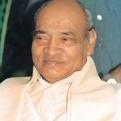-
-
-
-
Tell a friend
-
-
Most viewed in last 30 days
-

-

-

-

-

-

-

-

-

-

-

-

-
.thumb.gif.343fe49c7e1c507ae0056326bd8cf77e.gif)
-

-
 44
44hunkyfunky3 · Started
-
.thumb.jpg.ce42bb16ec102475a78c2087ce269c7d.jpg)
-

-

-

-

-


Recommended Posts
Join the conversation
You can post now and register later. If you have an account, sign in now to post with your account.